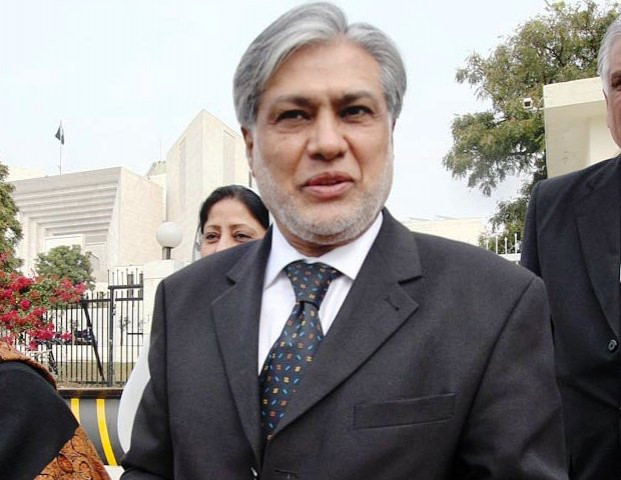The Wall Street Journal interview: ‘Pleased’ with slow but steady turnaround
Dar highlights steps taken to revive economy.

“I am quite happy and satisfied that things are moving the way they should be. We are right on track,” says Finance Minister Ishaq Dar. PHOTO: ONLINE/FILE
In addition to billions in revenue from sales of state assets, the government is also looking for as much as $5 billion from the spectrum auction, Dar told The Wall Street Journal.
Another plan in the works is to split into two companies the loss-making flag carrier, Pakistan International Airlines (PIA), ahead of selling a stake, he said.
In a dispatch from Islamabad published Tuesday, the newspaper noted that Prime Minister Nawaz Sharif inherited a troubled economy.
Since then, it said the government took major steps to cut subsidies and eliminate debt in the electricity sector, reducing blackouts. It also negotiated a $6.6 billion deal with the International Monetary Fund (IMF), staving off default.
The economy has since shown signs of reviving, even though growth barely keeps up with the birthrate, the Journal said, noting IMF’s acknowledgement this month of the tentative turnaround, especially in the large-scale manufacturing and services sectors, and raised its forecast for gross domestic product growth this fiscal year to 3.1% from the previous estimate of 2.8%.
The government is much more optimistic, expecting growth of around 4.4%.
“I am quite happy and satisfied that things are moving the way they should be. We are right on track,” Dar was quoted as saying by the Journal. “We are pursuing and taking the most difficult decisions, a few of which are politically unpopular. But, to fix the economy, those stabilising measures as well as structural reforms were necessary.”
Soon after taking office, the Journal noted, the government pledged to sell stakes in 31 state-owned companies. “Many of these, however, are still in the process of selecting new management teams,” it said.
Dar said in the Journal interview first on the block would be government stakes in petroleum companies and in lenders such as Habib Bank Ltd., Allied Bank Ltd. and United Bank Ltd.
Meanwhile, as part of the restructuring, PIA is likely to be split into two companies, with a holding group retaining some Rs250 billion in debt and excess personnel, and a “new” PIA holding the lucrative landing rights and the new aircraft. Then, the government plans to sell a 26% stake in that “new” PIA to a strategic partner, Dar told the Journal.
Published in The Express Tribune, February 20th, 2014.
Like Business on Facebook, follow @TribuneBiz on Twitter to stay informed and join in the conversation.


















COMMENTS
Comments are moderated and generally will be posted if they are on-topic and not abusive.
For more information, please see our Comments FAQ